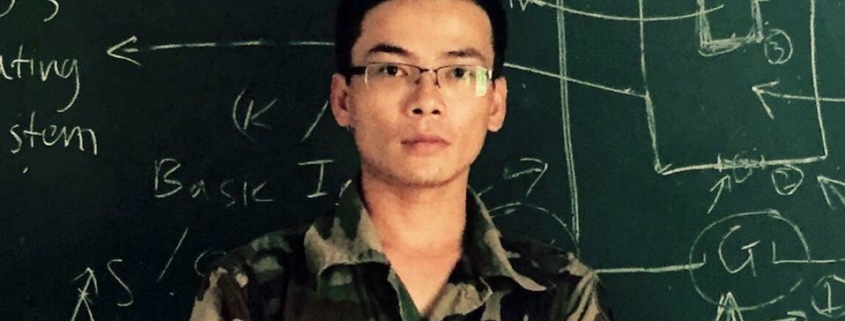Vietnam Free Expression Newsletter No. 46/2018 – Week of November 19-25
Featured Image: Nguyen Viet Dung
Greetings from The 88 Project! We are bringing you news, analysis, and actions regarding human rights and civil society in Vietnam during the week of November 19-25. Political prisoner Nguyen Viet Dung was transferred to a new prison farther away from his family. Tran Huynh Duy Thuc was possible poisoned in prison. Imprisoned labor rights advocate Tran Thi Nga was finally able to see her two children, but Nguyen Ngoc Anh’s family was denied a visit with him. Religious activist Siu Thai was beaten so severely in prison that his memory was damaged and he could not walk on his own. Two prisoners’ appeals of their sentences were denied this week: citizen journalist Do Cong Duong and Facebooker Nguyen Hong Nguyen. We also remember four religious activists this week who were arrested in November 2012 for their involvement in a pro-environment Buddhist sect that was targeted for their beliefs. Huynh Truong Ca, a member of the Hien Phap constitutional rights group, has been recommended to be prosecuted under Article 117 of the 2015 Criminal Code. And Le Thu Ha, a pro-democracy activist who was released early from prison in June, attempted to return to Vietnam from exile in Germany but was denied entry and sent back. Nguyen Ngoc Nhu Quynh (Mother Mushroom), who was also released early from her ten-year prison sentence, was awarded the 2018 International Press Freedom Award this week. Also this week, police harassed activist Le Hong Phong and also detained female journalist Thu Le for questioning. In the news, read about Mother Mushroom’s international advocacy efforts and an interview with recently-imprisoned William Nguyen from the BBC, as well as a review of Mai Khoi’s New York performance with her band Mai Khoi and the Dissidents. Coming up, female blogger Huynh Thuc Vy will face trial on November 30 for spray-painting a flag in protest of the government. Please take action to support our work: donate to The 88 Project on the occasion of Giving Tuesday so that we can continue to bring you the latest news on freedom of expression in Vietnam!
Please subscribe to the newsletter!
HUMAN RIGHTS & CIVIL SOCIETY
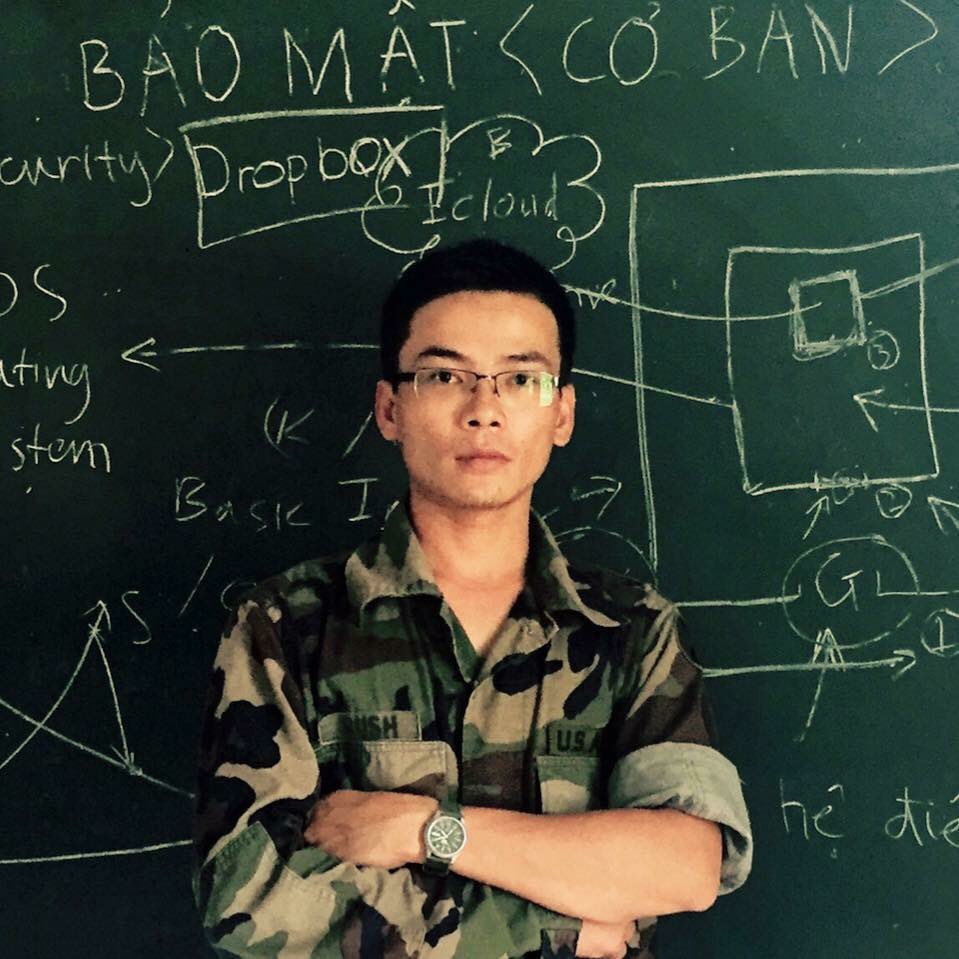
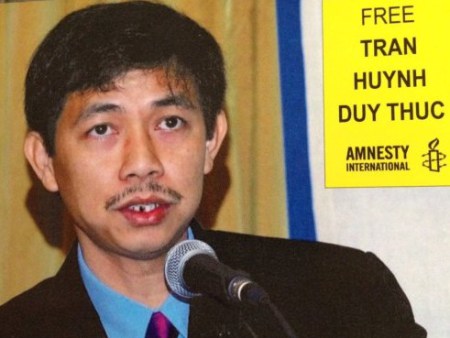
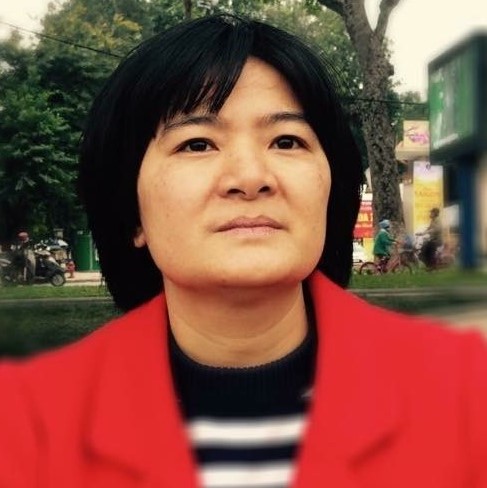
On November 21, political prisoner Siu Thai, held at An Diem prison center in Quang Nam Province, was beaten so harshly that he lost his memory. In the latest meeting with his family, Siu Thai was not able to recognize any of his relatives. Moreover, he could not walk by himself. Siu Thai, also known as Ama Thương, is an ethnic Montagnard Christian arrested in April 2011. He was tried in December 2011 and sentenced to 10 years imprisonment under Article 87 (“undermining the unity policy”) of the 1999 Penal Code.
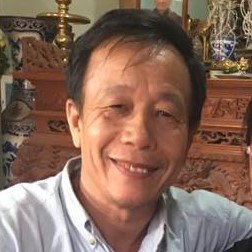
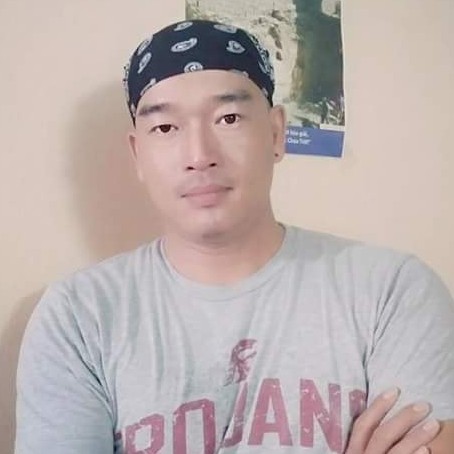
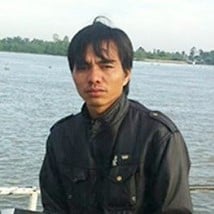
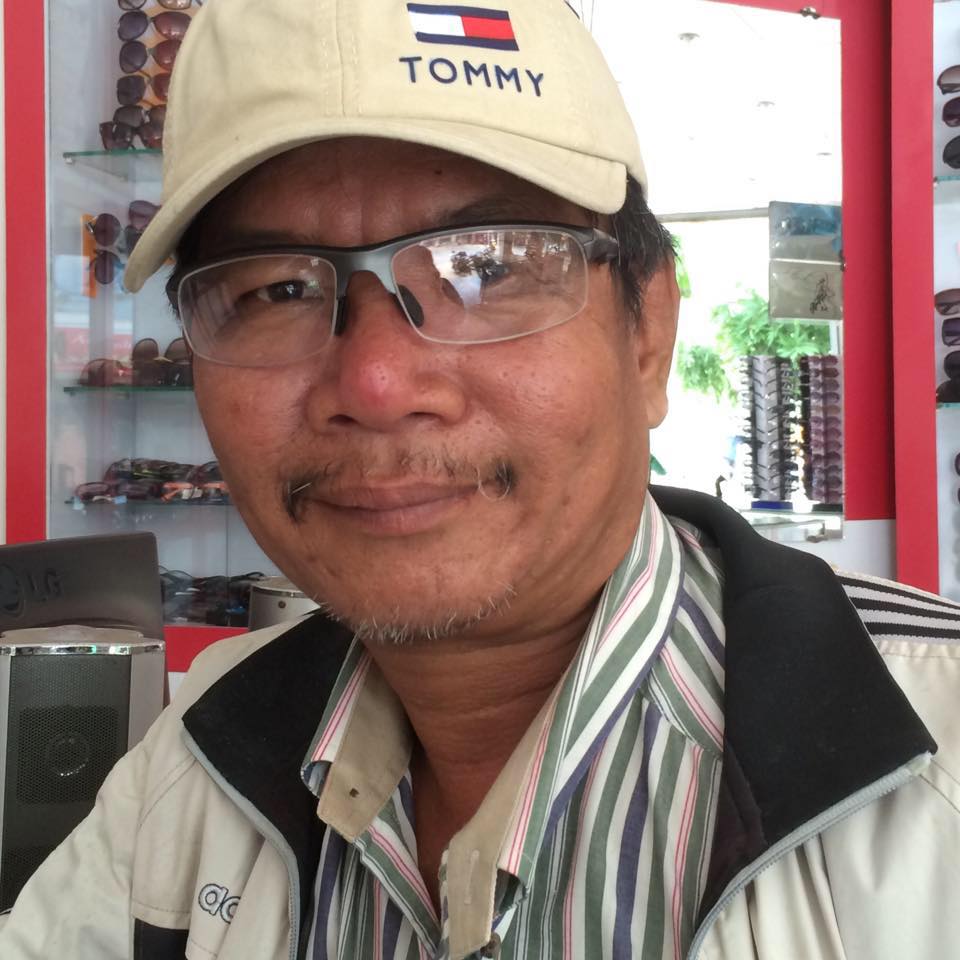
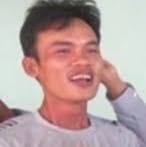
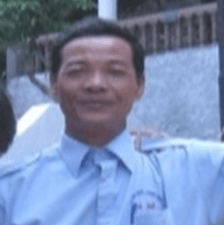
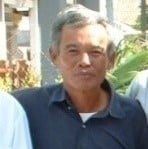
This week, we remember four religious and environmental activists (Nguyen Thai Binh, Nguyen Dinh (not pictured), Phan Thanh Y, and Tu Thien Long) who were members of An Dan Dai Dao, a Buddhist sect founded in 1969 but outlawed after the Communist regime took over South Vietnam in April 1975. They were arrested in November 2012 and sentenced to between 12 and 16 years. Twenty-two people in total were tried under Article 79 of the 1999 Penal Code in January 2013, in what is called the “Council for the Laws and Public Affairs of Bia Son” affair. The group was charged with subversion and accused of writing documents critical of the government, and setting up two companies and investing in an eco-tourism park as a cover for recruiting supporters. However, those affiliated with the group maintained that the activities of the group were purely religious and that the authorities interpreted their religious teaching in political terms.
William Nguyen, an American graduate student of Vietnamese descent, has spoken out more about his ordeal of being arrested, detained, and deported from Vietnam. Read the English translation of his BBC interview, here. When asked, What would you like to tell a representative of the Vietnamese government if you sit in front of them right now?, he said: “I am not your enemy. I wasn’t when I was participating in the protests, and I’m not now. But the country urgently needs the contributions of all Vietnamese—native and overseas— and that will be impossible without national reconciliation and political reform. In these two goals, I am willing to help in any way I can.”
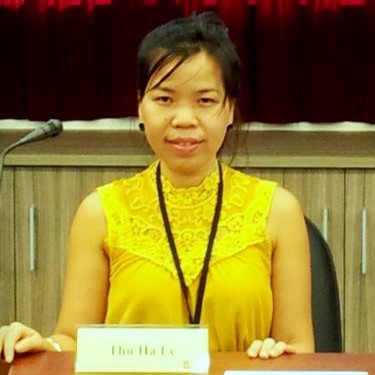
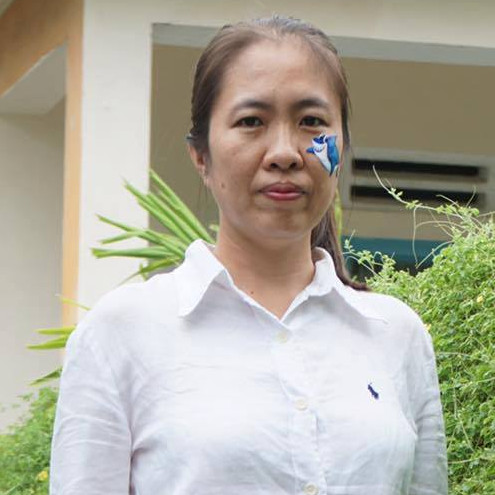
Facebooker Nhi Nguyen reported that journalist Thu Le and her daughter were taken in custody again on November 22, 2018 when they were at a hotel. Later, Thu Le reported her incident on Facebook, stating that she and her daughter rented a room at a hotel to after being harassed by police at their home. When she attempted to leave the room, police were waiting outside and “invited” her to the local police headquarters. She was released later that same day. Thu Le previously faced harassment after she was briefly detained and beaten by the police on November 9 for meeting up with families of protesters who were tried and imprisoned in Dong Nai Province.
NEWS & ANALYSIS
Mai Khoi & The Dissidents at National Sawdust: “Throughout the band’s eleven-song set list, Mai Khoi’s lyrics declared, boldly and without a doubt—they were literally the writing on the wall—that she’s a citizen of a country that systematically controls and silences the free expression of its populace. Her voice, whether defiant and soaring or supple and evocative, declared another truth. Mai Khoi also belongs to a borderless territory, more difficult to contain and police, where generations of musicians, writers, and artists worldwide have created within and called home. That territory exists in every country, and since 2002, the Human Rights Foundation has awarded the Václav Havel International Prize for Creative Dissent to its most inspiring, at-risk inhabitants. In 2018, Mai Khoi was one of the recipients, along with the Sudanese rapper and former child soldier Emmanuel Jal, and the Belarus Free Theater.”
Vietnam: how to circumvent state repression: “Social movements are usually concerned with four main tasks: first, to strengthen the voice of the oppressed and the marginalized. Second, to learn from other movements’ knowledges, strategies and tactics. Third, to build networks of international solidarity. Fourth, to work towards an emancipatory political programme that provides the groundwork for these strong international ties. Yet, different contexts demand different actions. In authoritarian countries like Vietnam, activists (and non-activists) are required to embrace tactics that facilitate the circumvention of acute state repression, including hiding, fleeing, creating and merging. In the following I provide an explanation of how these tactics are being used in the Vietnamese context.”
Exile won’t stop Vietnamese blogger from highlighting abuses: “Quynh says her eyesight was affected by months in solitary confinement, with her cell kept in darkness during the day and flooded with blinding light at night. ‘In Vietnam, I read in the newspaper that the people in the U.S. have freedom, but it belongs to the U.S. government. My government said that,’ Quynh said in a recent interview. ‘When I came here … I found out the people here, the citizens in the U.S., they really have’ freedom. What she has so far seen as she settles into her new life in Houston has given Quynh the belief that her homeland — criticized by groups such as Amnesty International for restricting freedom of speech, the press and religion — will one day be transformed and she will be able to return.”
COMING UP
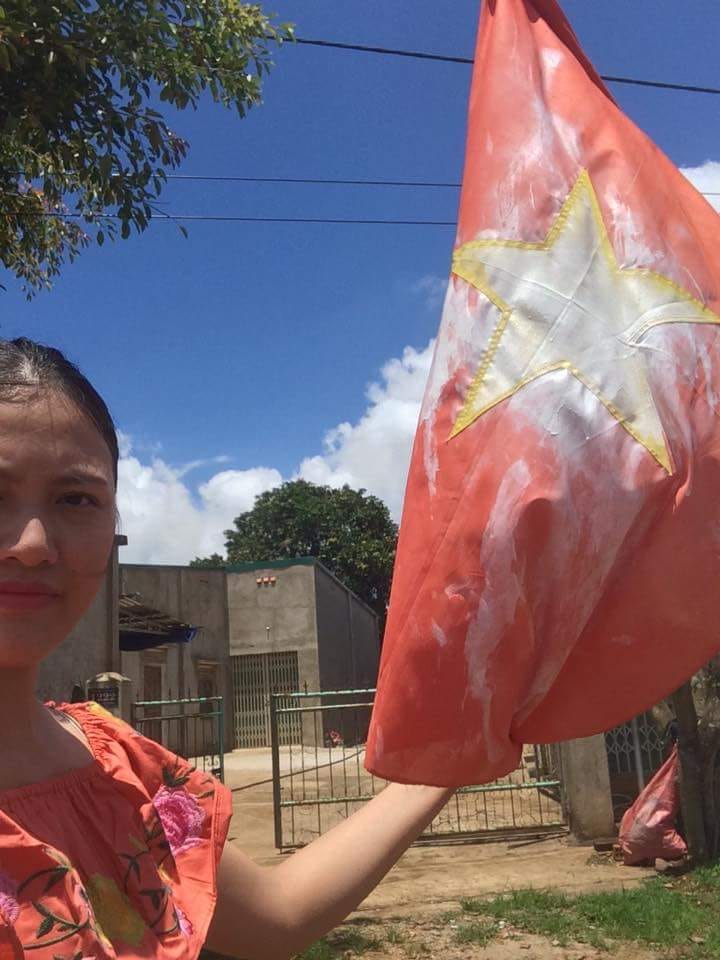
TAKE ACTION
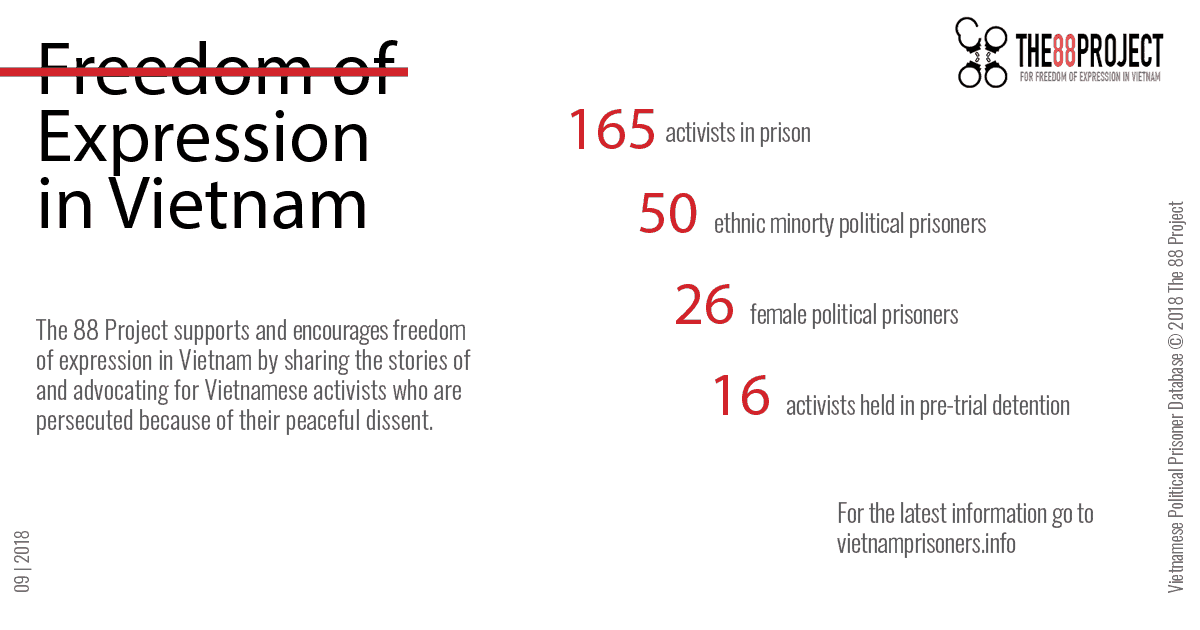
Mark your calendars! November 27 is Giving Tuesday. How will you give? 2018 has been a tough year for activists in Vietnam, with 54 activists and protesters arrested in the year thus far. In total, there are 181 political prisoners currently serving jail time or in pre-trial detention. Yet they continue their work, and so will we! Find out how you can support them, here. And please consider donating to The 88 Project to help sustain our efforts to bring up-to-date information about political prisoners and activists at risk.
© 2018 The 88 Project


